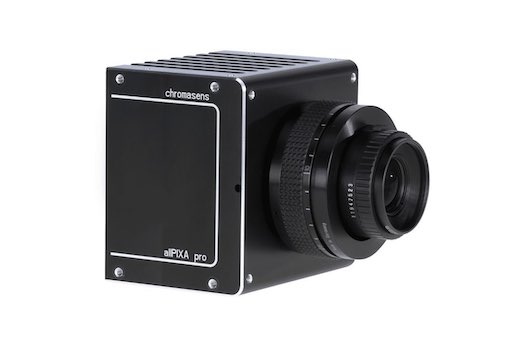Chromasens Line Scan Cameras Detect Wide Spectrum of Defects in High-speed Offset Printing
Press release from the issuing company

KONSTANZ, Germany - Offset print inspection is critical to a finished product's quality because even the smallest flaw can have serious consequences. Failure to identify both randomly occurring and recurring print defects can expose businesses to costly reprinting and operational strains, as well as customer dissatisfaction. In heavily regulated sectors like pharmaceuticals, inaccuracies can have even more serious consequences including fines and product recalls.
To protect their businesses and reputations, print operators worldwide rely on Chromasens allPIXA pro trilinear CCD line scan cameras combined with Chromasens Corona II dark field LED illumination. In an automated inspection system, the cameras and illumination will help detect a wide spectrum of print defects, such as misalignment of colors, die-cut errors, matrix residues, wrinkles, smudges, streaks, creases and other imperfections. Once alerted to flaws, operators can perform swift corrective actions.
The most advanced model of the Chromasens allPIXA pro camera family is the allPIXA pro 7.3K. It captures 2048 pixels x 3 lines (RGB) at line rates up to 92.7 kHz using large 10 x 10 µm pixels for the best image quality. Its trilinear CCD line sensor is extremely sensitive for exceptional color accuracy, while its 925mm field of view (FOV) accommodates oversized work pieces.
In addition to the allPIXA pro 7.3, Chromasens offers a 4k version with a maximum line rate of 4096 x 3 pixels at 50.8 kHz, as well as 2K, 5K and 6K models. The cameras feature the universal CameraLink™ interface for fast, hassle-free installations. Besides acquiring in True RGB, allPIXA pro cameras will capture in mono and into the NIR waveband, offering an economical and flexible camera solution for a wide variety of print, machine vision and automation applications.
To make the most of allPIXA pro cameras, high quality line lighting is essential. Chromasens Corona II dark field lighting modules deliver powerful brightness up to 3,500,000 lux while ensuring outstanding homogeneity via a patented reflector design that perfectly shapes light, therefore eliminating chromatic aberrations. Chromasens developed a technology to focus LEDs by using elliptical reflectors instead of using lenses.
- Questions to ask about inkjet for corrugated packaging
- Can Chinese OEMs challenge Western manufacturers?
- The #1 Question When Selling Inkjet
- Integrator perspective on Konica Minolta printheads
- Surfing the Waves of Inkjet
- Kyocera Nixka talks inkjet integration trends
- B2B Customer Tours
- Keeping Inkjet Tickled Pink
© 2024 WhatTheyThink. All Rights Reserved.














